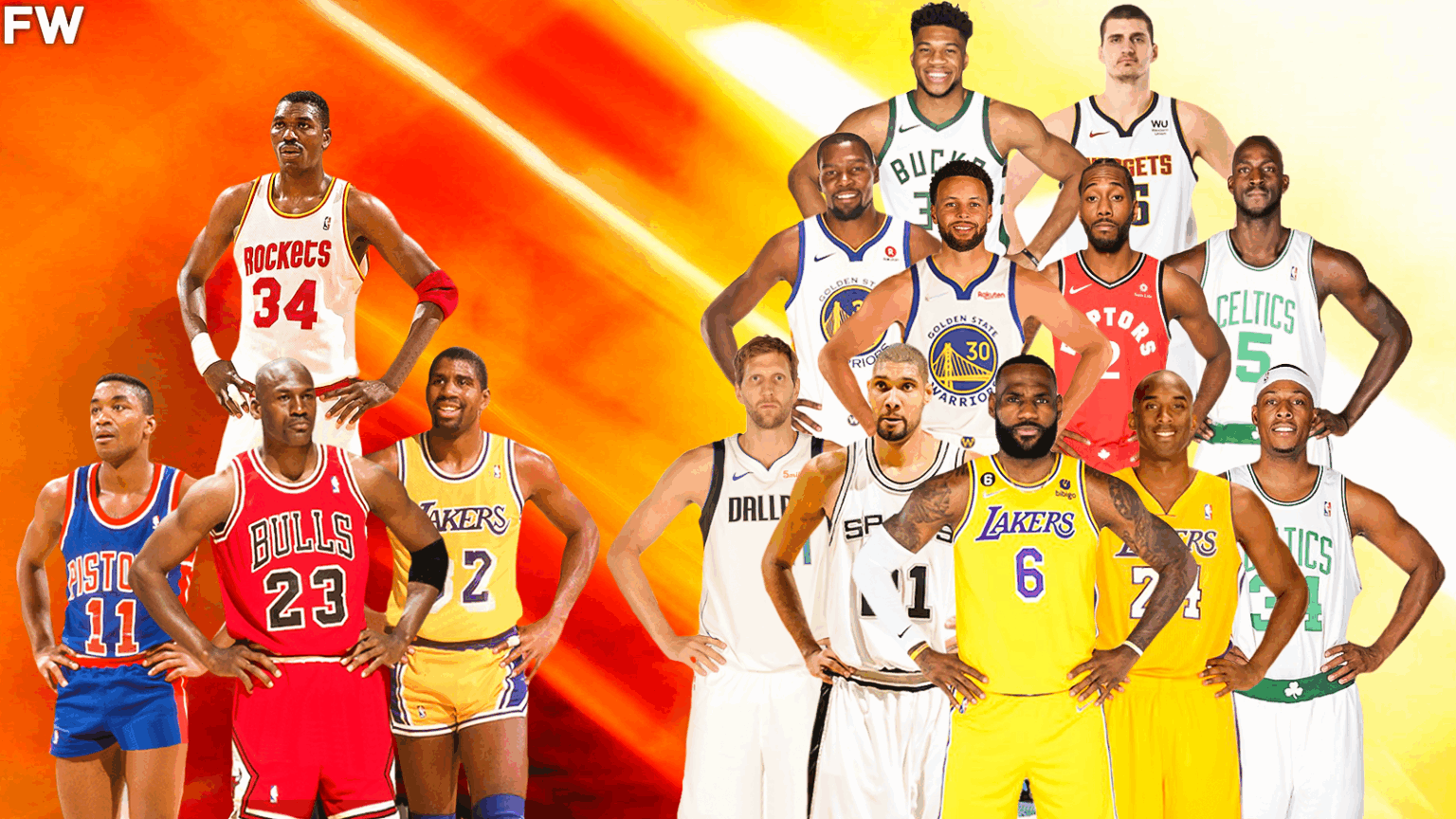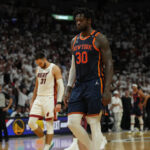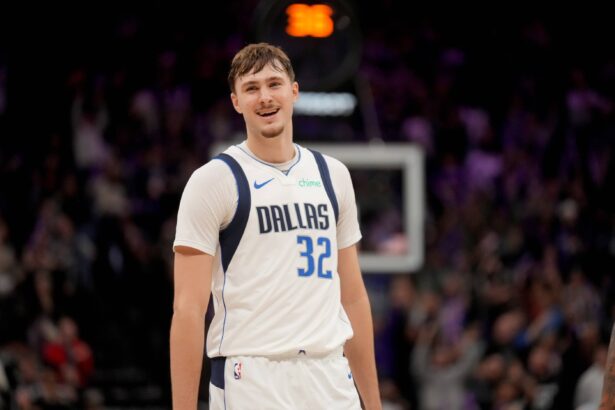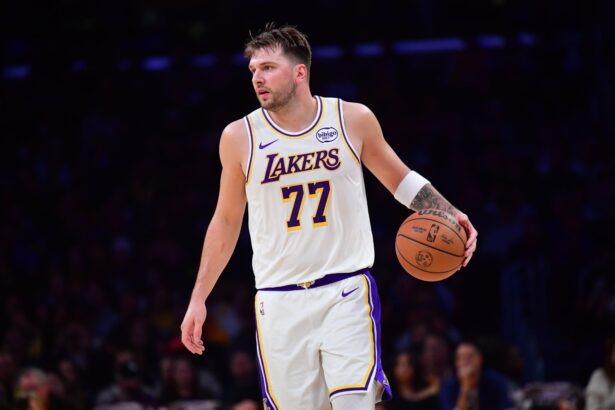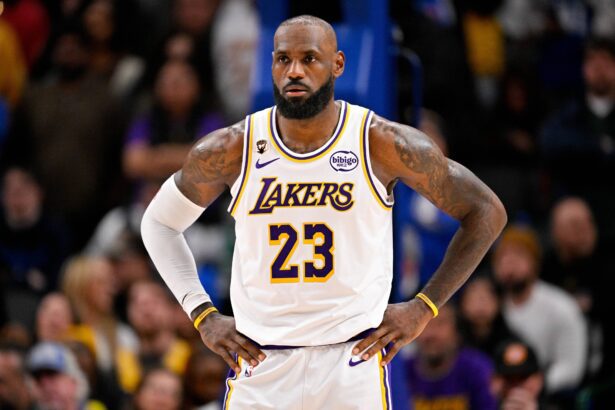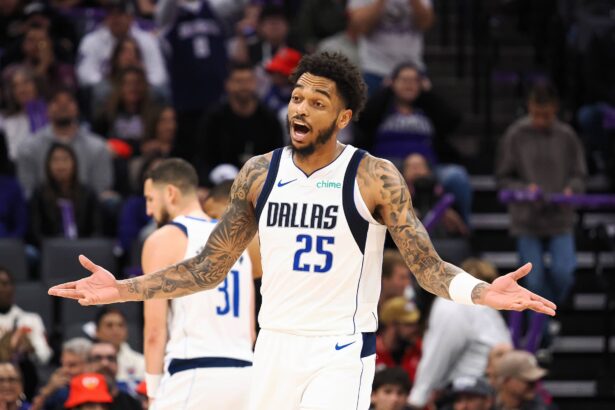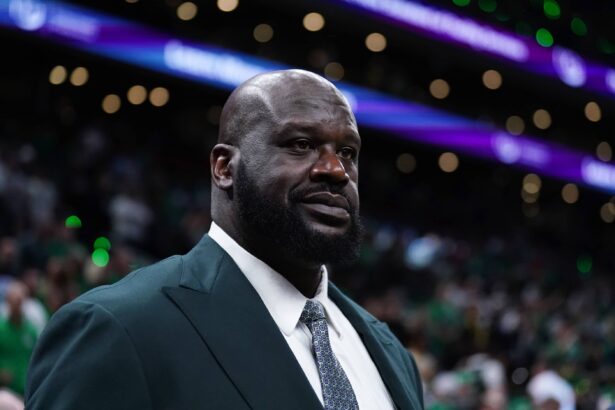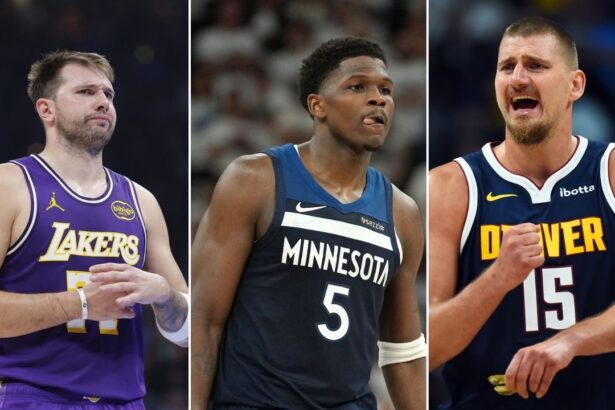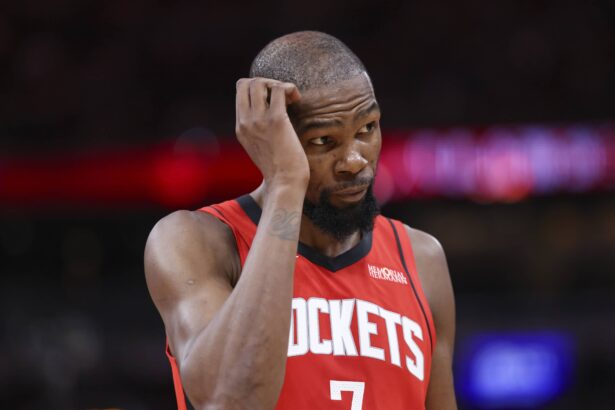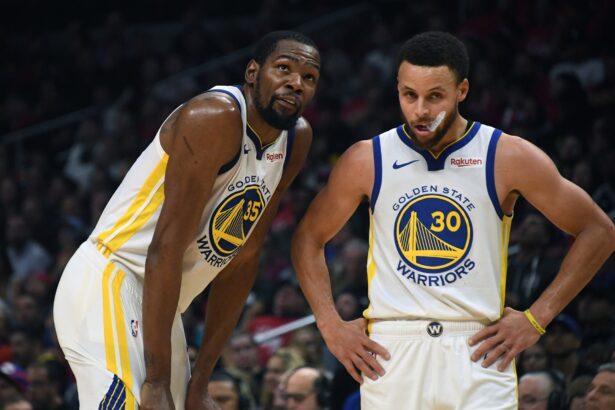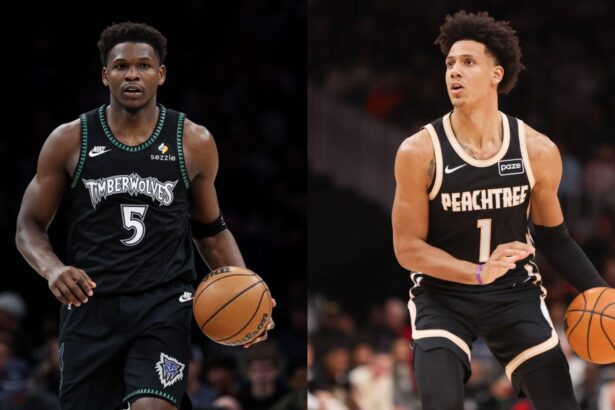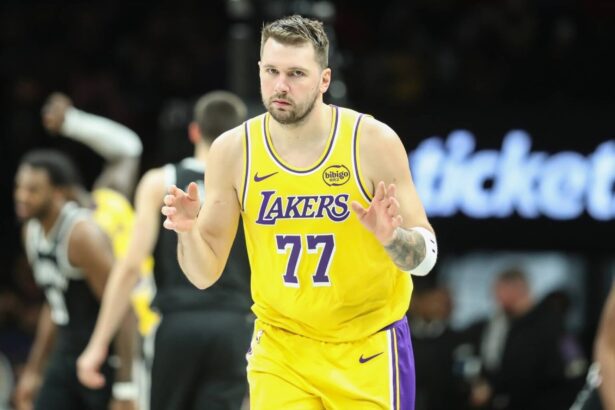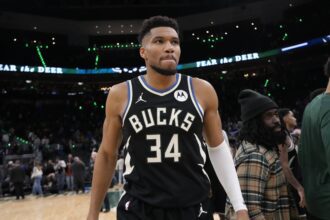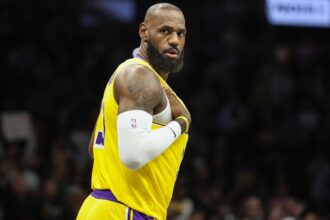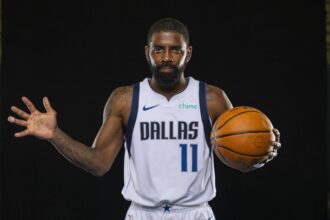- Michael Jordan is truly the greatest competitor of all-time
- LeBron James has had an iconic career that spanned two decades to date
- Winning a championship during an era dominated by MJ and The King was very difficult
The NBA has been blessed with numerous eras that showcased basketball excellence and unforgettable moments, but two names consistently stand out as pillars of greatness – Michael Jordan and LeBron James. These two transcendent superstars, each with their unique styles and legacies, have left an indelible mark on the sport, shaping basketball’s landscape for generations to come. As the world witnessed the brilliance of Michael Jordan in the 1990s and then witnessed the rise of LeBron James in the 2000s and beyond, the league bore witness to an unprecedented era of talent and competition.
- NBA Superstars Who Won During Michael Jordan’s Era
- 1988 – Magic Johnson (Los Angeles Lakers)
- 1989 – Isiah Thomas (Detroit Pistons)
- 1990 – Isiah Thomas (Detroit Pistons)
- 1994 – Hakeem Olajuwon (Houston Rockets)
- (Not Counted)
- 1995 – Hakeem Olajuwon (Houston Rockets)
- NBA Superstars Who Won During LeBron James’ Era
- 2007 – Tim Duncan (San Antonio Spurs)
- 2008 – Paul Pierce, Kevin Garnett (Boston Celtics)
- 2009 – Kobe Bryant (Los Angeles Lakers)
- 2010 – Kobe Bryant (Los Angeles Lakers)
- 2011 – Dirk Nowitzki (Dallas Mavericks)
- 2014 – Tim Duncan (San Antonio Spurs)
- 2015 – Stephen Curry (Golden State Warriors)
- 2017 – Kevin Durant, Stephen Curry (Golden State Warriors)
- 2018 – Kevin Durant, Stephen Curry (Golden State Warriors)
- 2019 – Kawhi Leonard (Toronto Raptors)
- 2021 – Giannis Antetokounmpo (Milwaukee Bucks)
- 2022 – Stephen Curry (Golden State Warriors)
- 2023 – Nikola Jokic (Denver Nuggets)
- Michael Jordan Only Let 3 Superstars Win Championships In His Prime, LeBron James Had To Succumb To 10 Players
In an era marked by fierce competition, it is only fitting to celebrate the other exceptional athletes who flourished during the overlapping reigns of Jordan and James, proving themselves worthy of championship glory. While Michael Jordan secured six NBA titles with the Chicago Bulls during his illustrious career, LeBron James forged a path to greatness by lifting four Larry O’Brien trophies with different teams, solidifying his status as one of the greatest of his generation.
Beyond the immense shadow cast by these two basketball icons, a select group of extraordinary players emerged as champions, etching their names alongside the giants of the game. From clutch shooters to relentless defenders, from masterful playmakers to dominating big men, these NBA superstars showcased their unparalleled skills during an era that witnessed the transition of the basketball throne from one legend to the next.
In this article, we embark on a journey through time to honor and celebrate those remarkable individuals who triumphed during the mesmerizing dual era of Michael Jordan and LeBron James. As we delve into the remarkable achievements and unwavering determination of these unsung heroes, we discover the stories of resilience, teamwork, and sheer dedication that shaped a dynamic era of NBA basketball.
By eliminating the first three seasons of both Jordan and James’ careers to be fair to their growth as superstars, it is time to analyze which superstar players won during their eras.
NBA Superstars Who Won During Michael Jordan’s Era
By not taking notice of Michael Jordan’s first three seasons, from 1985-1987, let’s see which elite stars won championships during the GOAT’s era. We will also not take into account Michael Jordan’s final run with the Washington Wizards between 2002 and 2003, when he was 38 and 39 years old. While some might hold Jordan’s decline against him in those final two seasons, Jordan did retire for nearly five full seasons which makes this a suitable analysis because he would have probably won more than six titles with the Chicago Bulls.
1988 – Magic Johnson (Los Angeles Lakers)
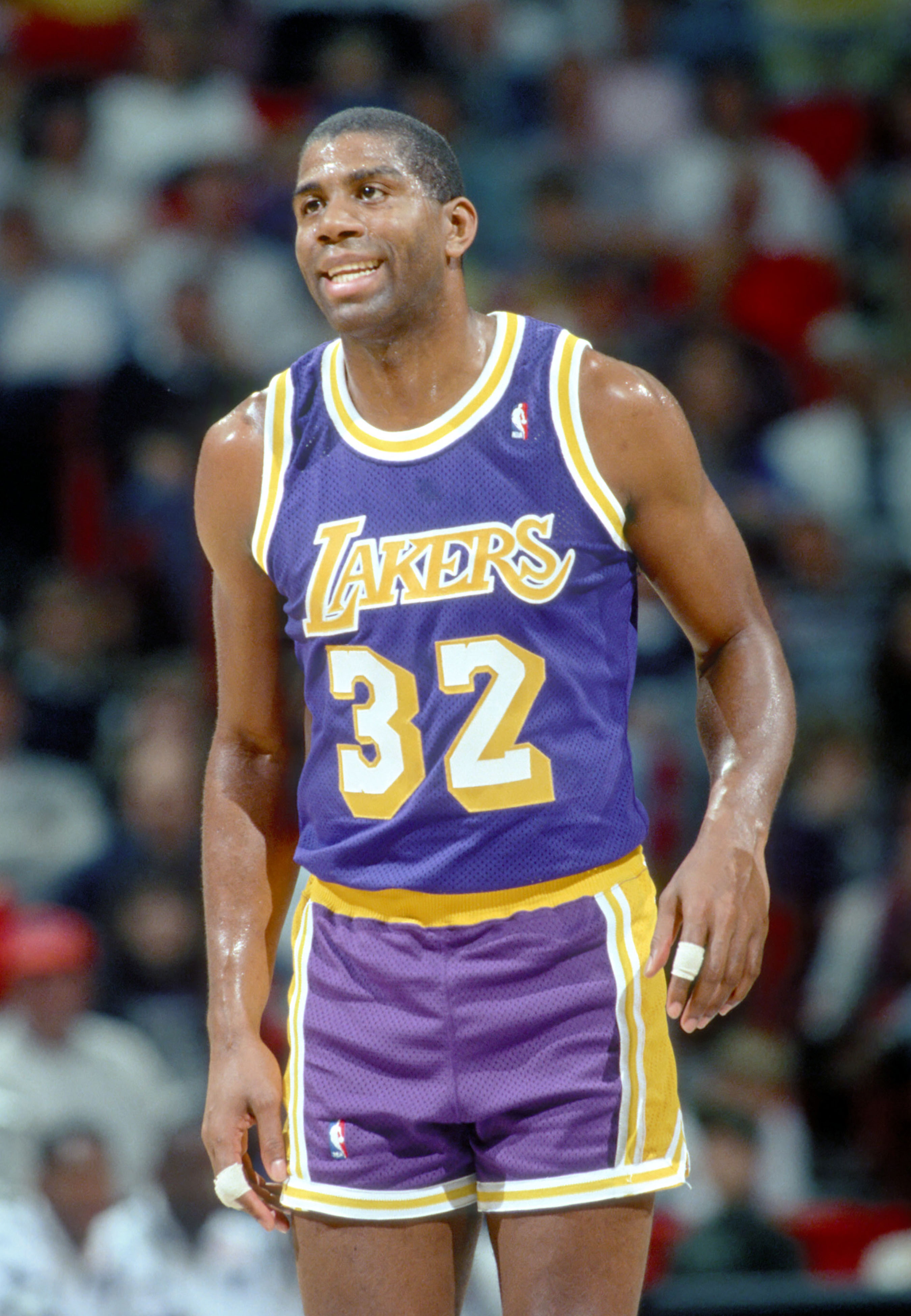
In the 1987-88 NBA season, Earvin “Magic” Johnson led the Los Angeles Lakers with unparalleled skill, leadership, and charisma to the Finals and won a championship. During the regular season, Johnson averaged an impressive 19.6 points, 12.6 assists, and 6.2 rebounds per game, solidifying his position as one of the league’s top players. However, it was during the playoffs that Magic Johnson truly displayed his championship mettle. Guiding the Lakers through a tough Western Conference featuring the San Antonio Spurs, Utah Jazz, and Dallas Mavericks he orchestrated the team’s path to the NBA Finals.
In the NBA Finals, the Lakers faced off against the formidable Detroit Pistons, known for their tough and physical style of play. In a dramatic and hard-fought series, Magic Johnson elevated his performance to new heights, including a pivotal Game 6 when the point guard dropped 22 points, and 19 assists in a one-point victory.
In the decisive Game 7, Johnson once again showed his brilliance, orchestrating the Lakers’ offense and creating opportunities for his teammates. He finished the game with 19 points, 14 assists, and 9 rebounds, leading the Lakers to a 108-105 victory and securing his fifth NBA championship. Michael was with the Chicago Bulls at the time, but he could only make it to the second round before the “Bad Boy” Pistons knocked him out.
1989 – Isiah Thomas (Detroit Pistons)
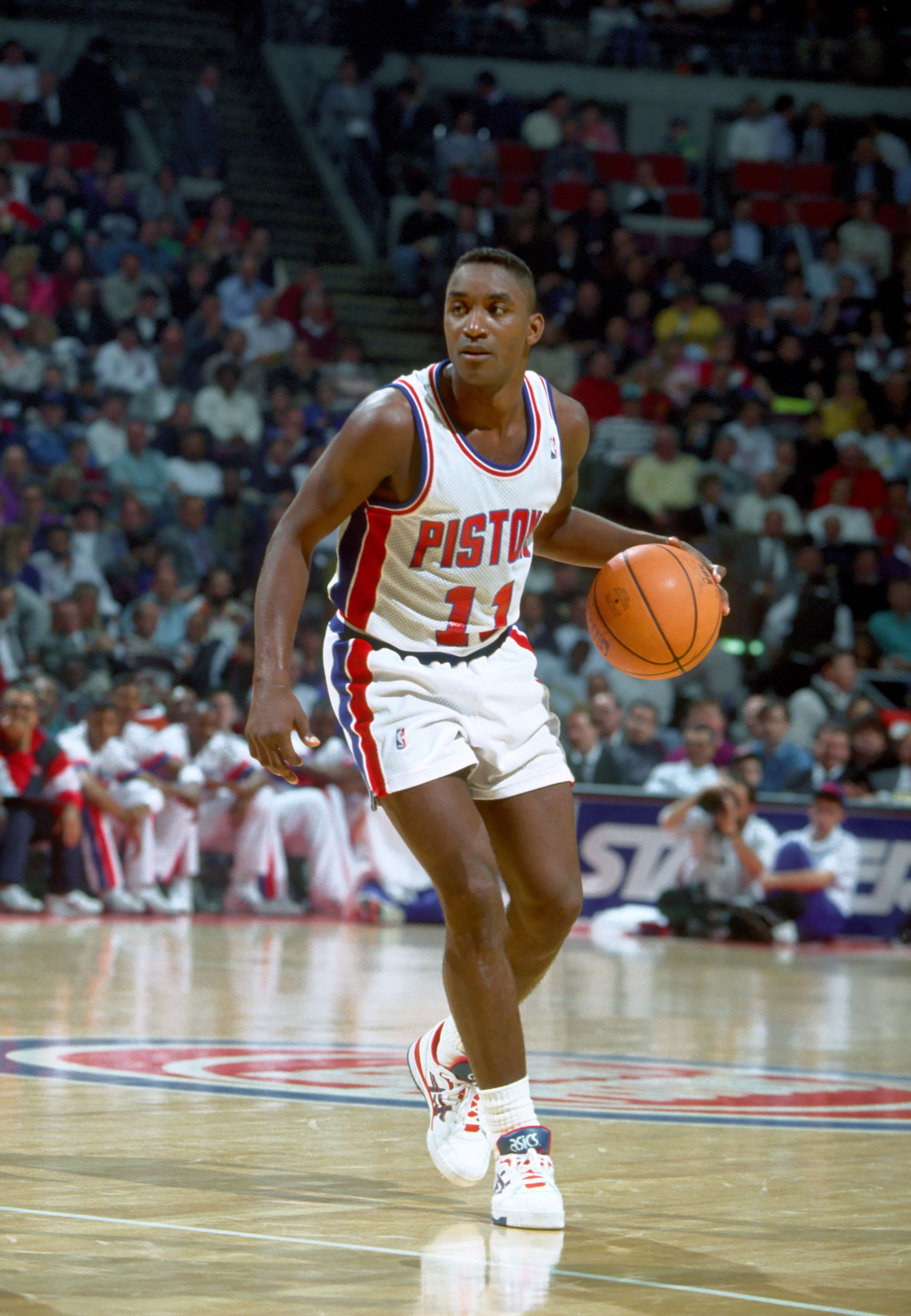
Michael Jordan once again had a chance to boost the Chicago Bulls to the NBA Finals but ran into the Bad Boy Pistons led by Isiah Thomas. This time, the Pistons beat down Jordan and the Bulls in six games in the Eastern Conference Finals. With the momentum gained from defeating the NBA’s greatest player, Thomas led the Pistons past the Los Angeles Lakers in a highly-anticipated rematch.
The plan to win it all began from the very start of the year, however. During the regular season, Thomas averaged 18.2 points, 8.3 assists, and 3.4 rebounds per game, showcasing his all-around skills and leadership on the court. After taking care of the Boston Celtics, Milwaukee Bucks, and a 25-year-old Jordan and the Bulls, the NBA Finals arrived.
There was no way the Pistons were going to lose this time. Thomas (21.3 points and 7.3 assists per game) was the leader of the team, but Joe Dumars was the star of the Finals, posting 27.3 points and 6.0 assists per game. The Lakers could not do enough to handle Thomas and Dumars, as the time for Detroit to get over the hump was now.
https://www.youtube.com/watch?v=wtwGnryTleI
Michael Jordan was at his peak in terms of athleticism, but he simply did not have enough help to take on the experienced and tough-minded Detroit Pistons led by their emotional leader Isiah Thomas. Jordan would come closer to getting to his first Finals appearance the following season, but once again, he could not get past the pesky Pistons.
1990 – Isiah Thomas (Detroit Pistons)
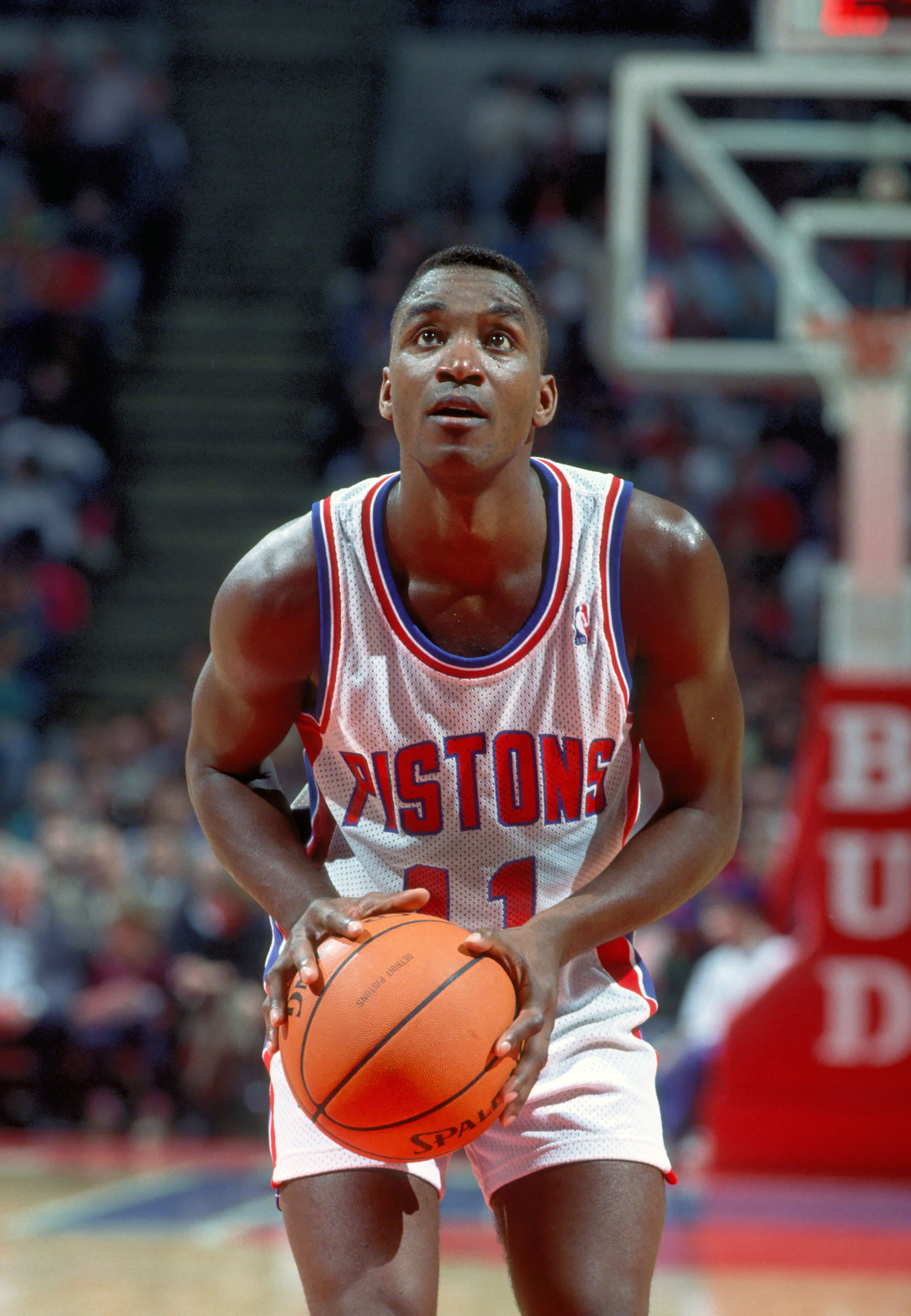
The 1989-90 NBA season proved to be another impressive campaign for Isiah Thomas and the Detroit Pistons. As the team’s leader and floor general, Thomas continued to showcase his exceptional skills as a point guard, playmaker, and clutch performer. During the regular season, he averaged 18.4 points, 3.8 rebounds, and 9.4 assists per game, underscoring his enduring impact on the Pistons’ success.
In the playoffs, the “Bad Boy” Pistons once again displayed their tenacity and defensive prowess, powering their way to the NBA Finals for the second consecutive year. They had to run into Jordan and the Bulls yet again, and while the GOAT got close by forcing a Game 7, the Pistons were too aggressive and stacked with veterans. Despite Jordan’s 31 points, the Pistons blew the Bulls out by 19 points in a dominating performance.
Detroit’s opponents in the Finals were the formidable Portland Trail Blazers, who had an explosive offensive lineup led by Clyde Drexler. Thomas elevated his game to new heights, asserting his dominance on the grandest stage. Throughout the series, he provided steady leadership and orchestrated the Pistons’ offense with masterful precision. In Game 5 of the Finals, with the Pistons leading the series 3-1, Isiah Thomas once again demonstrated his clutch gene.
In a closely contested game, he scored a remarkable 29 points to lead his side to a closeout victory. His explosive scoring outburst helped the Pistons secure a crucial 92-90 victory, clinching their second consecutive NBA championship. Despite Jordan coming only one game away from his first Finals appearance, Thomas would win Finals MVP and lead the Detroit Pistons to their second-straight championship.
1994 – Hakeem Olajuwon (Houston Rockets)
(Not Counted)
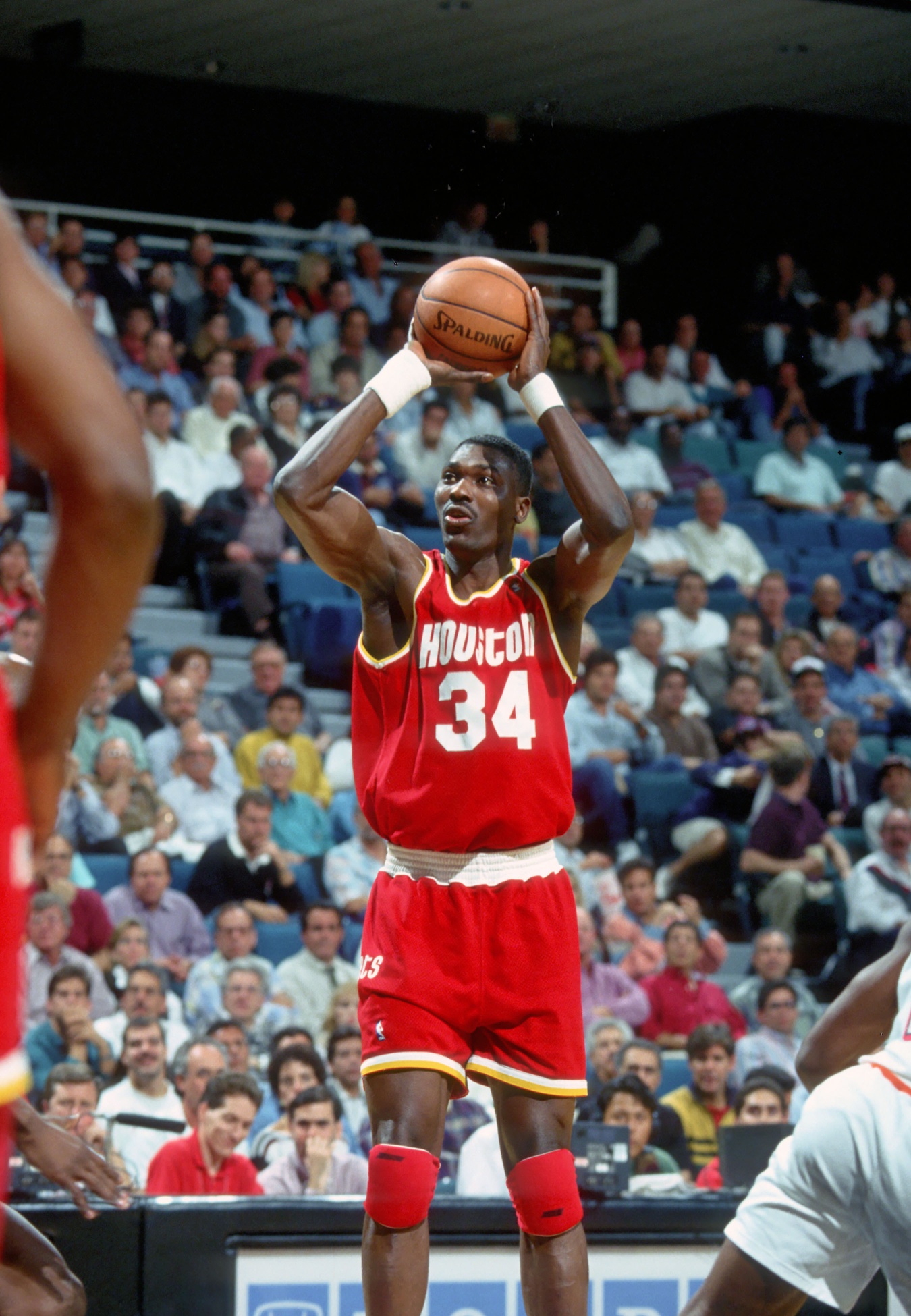
Michael Jordan, once he gained Scottie Pippen’s presence, would go on to have a three-peat between 1991 and 1993 before retiring for nearly two full seasons. With the greatest player in the world out of the game, Hakeem Olajuwon and the Houston Rockets would take advantage.
The 1993-94 NBA season witnessed Hakeem Olajuwon at the pinnacle of his career. Leading the Houston Rockets, Olajuwon showcased his remarkable skills as a center, combining agility, footwork, and finesse with an array of post moves and a deadly mid-range jump shot. During the regular season, he averaged 27.3 points, 11.9 rebounds, and 3.7 blocks per game, putting up MVP-caliber numbers.
In the playoffs, Olajuwon’s dominance was on full display. He carried the Rockets through a series of tough opponents, including the Phoenix Suns and Utah Jazz, showcasing his defensive prowess and offensive brilliance. In the NBA Finals, the Rockets faced the heavily favored New York Knicks. Olajuwon rose to the occasion, outplaying the Knicks’ formidable frontcourt with an impressive display of scoring and shot-blocking.
In Game 7 of the NBA Finals, Olajuwon delivered a masterful performance, scoring 25 points, grabbing 10 rebounds, and dishing 7 assists to secure a thrilling 90-84 victory. This victory marked the first NBA championship in Rockets’ franchise history, and Olajuwon was named the Finals MVP for his outstanding contributions. Even if the Rockets had to go through tough contests to get it done, not having Michael Jordan in the league was a massive boost for the team.
We decided not to count this championship for the players who won during Michael Jordan’s era because the GOAT retired and didn’t play in the 1993-94 season. It is still important for NBA history to note how Olajuwon won the first title available upon Jordan’s imminent retirement.
1995 – Hakeem Olajuwon (Houston Rockets)
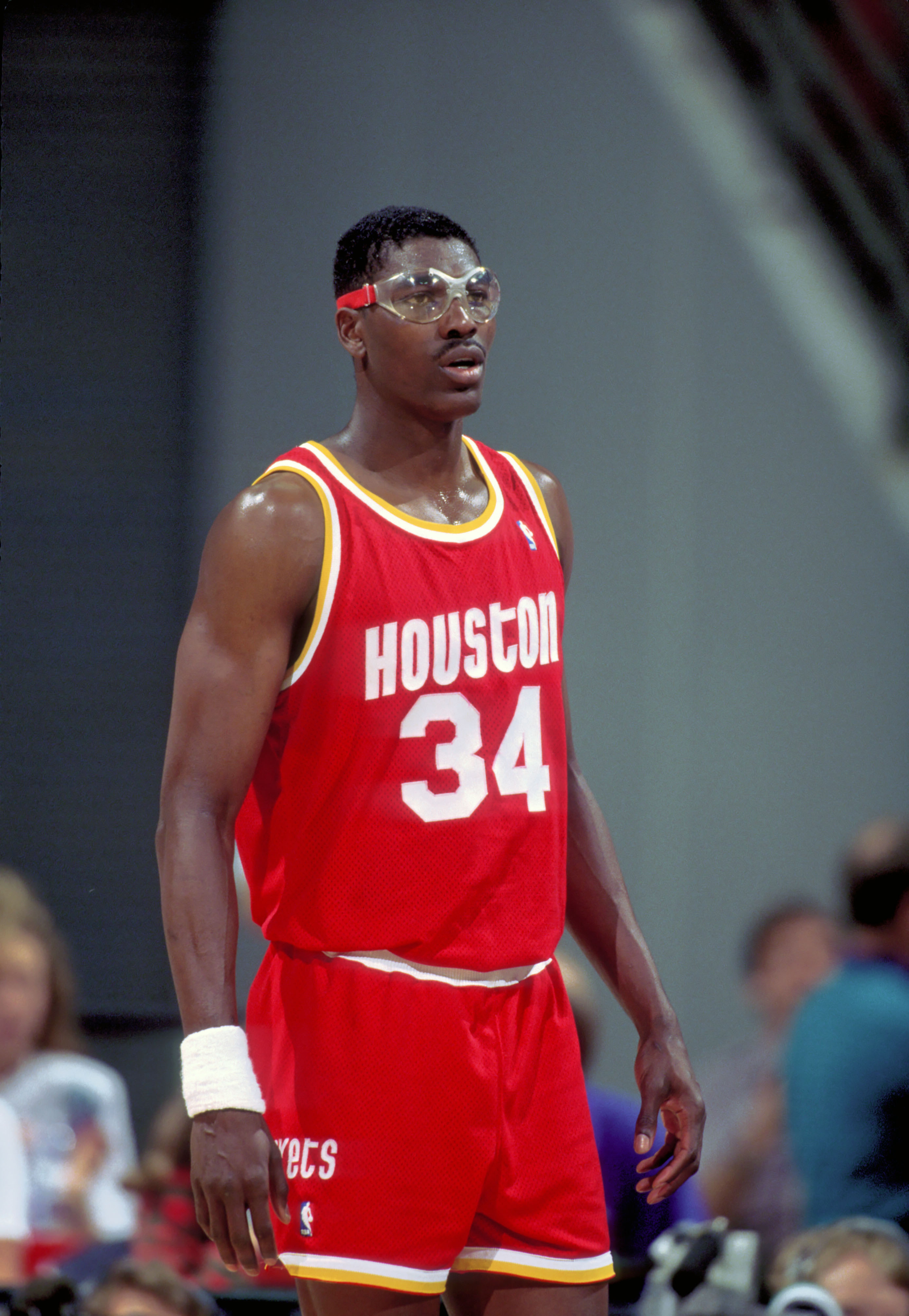
The following season, Olajuwon and the Rockets continued their winning ways. Despite facing tough competition in the playoffs, including the Phoenix Suns and San Antonio Spurs, Olajuwon’s leadership and basketball brilliance guided the team to another NBA Finals appearance. This time, they squared off against the young and talented Orlando Magic, led by Shaquille O’Neal and Penny Hardaway.
In the Finals, Olajuwon once again demonstrated why he was known as “The Dream.” He showcased his versatile scoring abilities and defensive acumen, leading the Rockets with unwavering determination. There was no answer for Olajuwon, even in Shaq’s presence, as he dominated with 31 points in Game 1, 34 points in Game 2, and 31 points in Game 3.
In Game 4, Olajuwon again dominated with a 35-point, 15-rebound performance, leading the Rockets to a decisive 113-101 victory and clinching their second consecutive NBA championship. For his exceptional contributions, Olajuwon was awarded his second consecutive Finals MVP honors.
Olajuwon’s championship runs in 1994 and 1995 showcase the impact a superstar center can have on a team’s success. His remarkable skills, tenacity, and leadership were instrumental in elevating the Houston Rockets to the pinnacle of the NBA during Michael Jordan’s era. Even if Jordan would return to capture the titles between 1996 and 1998, he still had to endure one of the game’s greatest centers capturing back-to-back titles during his era.
NBA Superstars Who Won During LeBron James’ Era
Similar to what we did with Michael Jordan, LeBron James’ first three seasons of his career will not be counted. Considering James has had an incredible career that has not shown any decline as of yet, The King’s career will be taken into account from the 2007 season when he made his first Finals appearance in his fourth season until the 2023 season as a member of the Los Angeles Lakers. While it is unfair to hold James accountable for many more seasons, it is actually a form of homage to The King and his incredible longevity.
2007 – Tim Duncan (San Antonio Spurs)
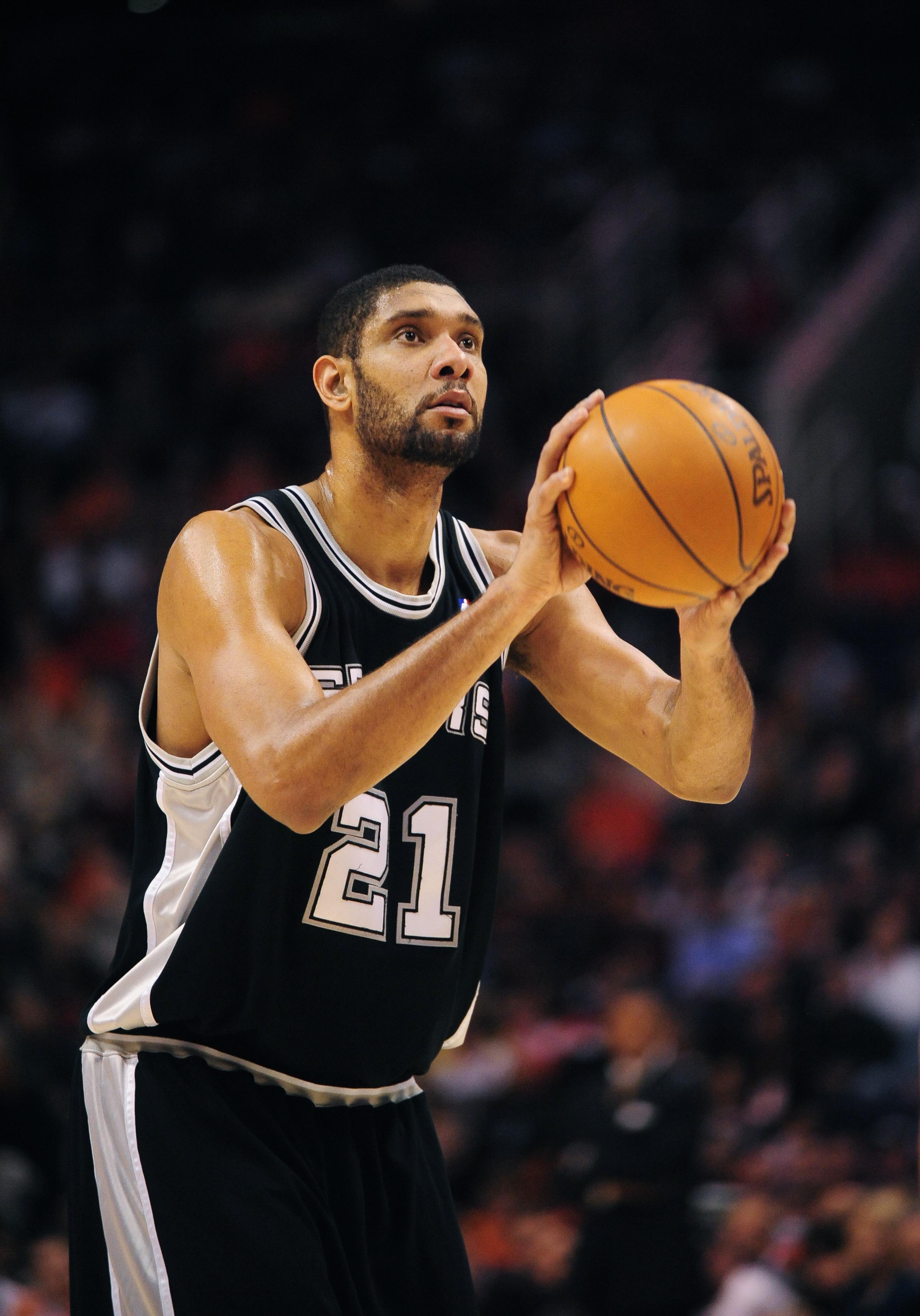
During the 2006-07 NBA season, Tim Duncan, the cornerstone of the San Antonio Spurs, continued to showcase his exceptional skills as a power forward and one of the most fundamentally sound players in the history of the game. His consistent scoring, rebounding, shot-blocking, and defensive prowess made him the focal point of the Spurs’ success.
In the playoffs, the Spurs, led by Duncan and the guidance of legendary coach Gregg Popovich, showcased their trademark teamwork and defensive excellence. Duncan’s leadership and ability to anchor the defense were instrumental in guiding the Spurs through tough opponents on their path to the NBA Finals. In the Finals, the Spurs faced the LeBron James-led Cleveland Cavaliers. Despite being heavily favored, the Spurs faced a spirited challenge from the Cavaliers, who were propelled by James’ remarkable individual performances.
Despite James averaging 22.0 points, 7.0 rebounds, and 6.8 assists per game, the Spurs were simply better. Duncan was a stalwart in the post, posting 18.3 points and 11.5 rebounds per game, but it was Tony Parker that won Finals MVP by averaging 24.5 points and 5.0 assists per game as he sliced his way through Cleveland’s defense.
2008 – Paul Pierce, Kevin Garnett (Boston Celtics)

The following season, James and the Cavaliers could not return to the NBA Finals as they lost in seven games to the superteam Celtics led by Paul Pierce, Kevin Garnett, and Ray Allen. Paul Pierce and Kevin Garnett’s championship run in 2008 is a prime example of NBA superstars who achieved success during LeBron James’ era.
Prior to the year, the Boston Celtics underwent a significant overhaul, acquiring Kevin Garnett and Ray Allen to join forces with their long-time star, Paul Pierce. The trio formed the “Big Three” and instantly transformed the Celtics into a formidable powerhouse in the Eastern Conference by winning 66 games. In the playoffs, the Celtics continued their dominant form, bulldozing through their opponents en route to the NBA Finals.
The Celtics met LeBron James and the Cleveland Cavaliers in the Eastern Conference Semifinals, with Boston capturing Game 7 thanks to a 41-point performance by Paul Pierce.
After taking care of the Detroit Pistons in the Eastern Conference Finals, Pierce and the Celtics had to take on Kobe Bryant and the Los Angeles Lakers, who they beat down over six games. In a dominant season, the Celtics were here to stay in LeBron’s era, and that was not great news for The King.
2009 – Kobe Bryant (Los Angeles Lakers)

All year long, we were treated to countless rivalry promos between the two best players in the world: Kobe Bryant and LeBron James. It was almost a foregone conclusion that the two would meet in the NBA Finals, but it was not meant to be. The Lakers once again made it back to the NBA Finals thanks to Bryant and the twin-tower pairing of Pau Gasol and Andrew Bynum, except they would have to face Dwight Howard and the Orlando Magic instead of LeBron James and the Cleveland Cavaliers.
LeBron could not get back to the Finals, losing to the Orlando Magic in six games. It was such a disappointing result for fans wanting a dream matchup between two basketball legends, and we would never get treated to a matchup of this magnitude again. Regardless, Bryant and the Lakers had to take care of business, and they did as the Lakers shooting guard captured Finals MVP by averaging 32.4 points, 5.6 rebounds, and 7.4 assists per game.
https://www.youtube.com/watch?v=gRJjfmuKLRs
Kobe Bryant winning a title in LeBron’s era was expected because he was so elite, and so were his teammates, but the biggest disappointment was not having the dynamic stars face each other in a highly competitive matchup. Regardless, Bryant would go on to win his fourth title, with a fifth one to follow in the following year.
2010 – Kobe Bryant (Los Angeles Lakers)
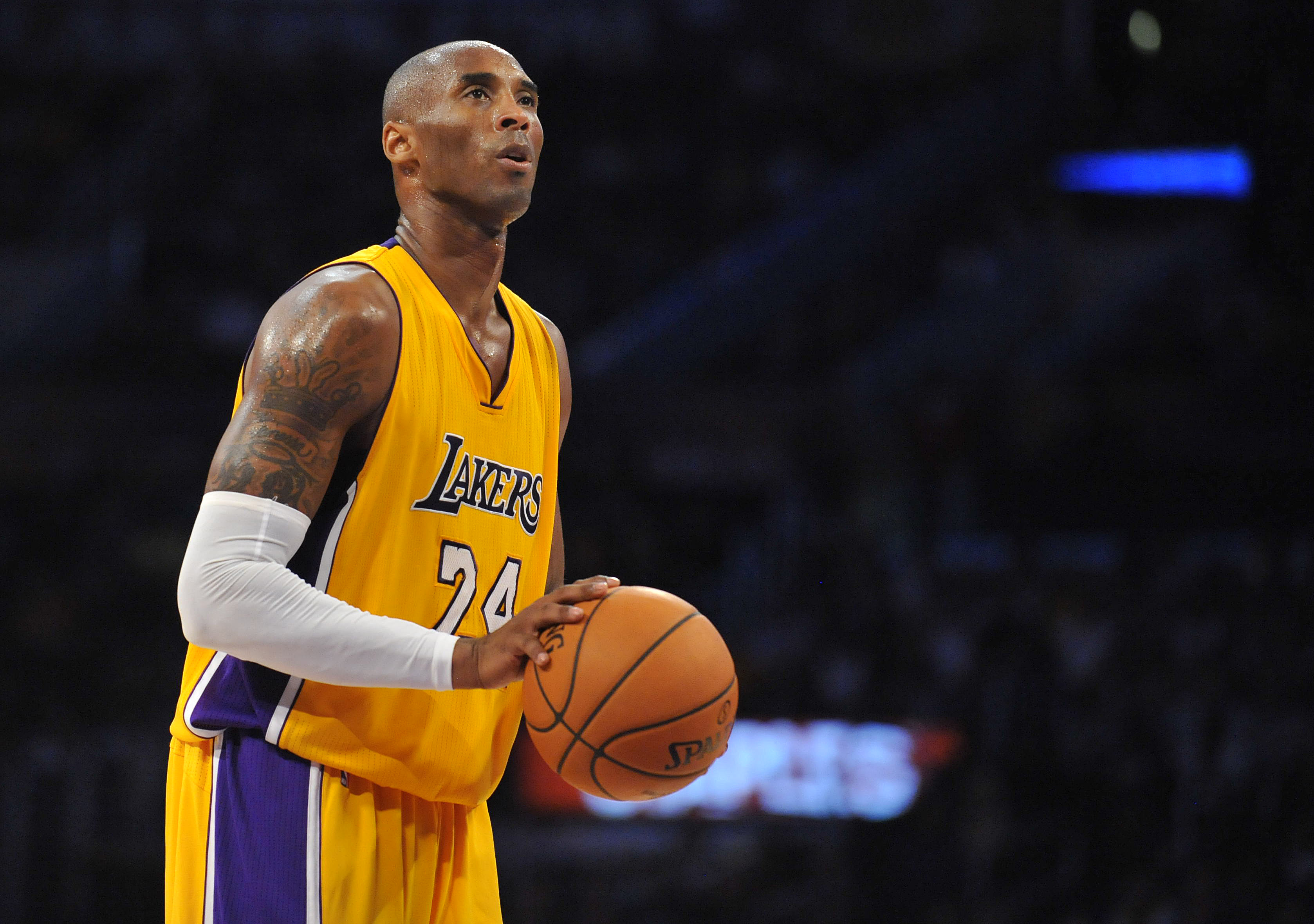
In the 2009-10 NBA season, Kobe Bryant, the face of the Los Angeles Lakers, continued to display his unparalleled scoring ability, relentless work ethic, and unwavering competitiveness. Throughout the regular season, Bryant averaged 27.0 points, 5.4 rebounds, and 5.0 assists per game, leading the Lakers to a Western Conference-best 57-25 record. He also solidified his reputation as one of the best closers in the game, consistently delivering clutch performances when the stakes were highest.
In the playoffs, the Lakers faced formidable challenges, including the Oklahoma City Thunder, Phoenix Suns, and Boston Celtics in the NBA Finals. Bryant’s leadership and ability to elevate his game in crucial moments were pivotal in guiding the Lakers through these tough opponents.
In the NBA Finals, the Lakers were seeking redemption after losing to the Celtics in the 2008 Finals. In a highly competitive and hard-fought series, Kobe Bryant was the driving force for the Lakers. In Game 7, with the series tied 3-3, Bryant delivered a masterful performance despite shooting 6-24 from the field, scoring 23 points and grabbing 15 rebounds, leading the Lakers to a narrow 83-79 victory and clinching their 16th NBA championship.
https://www.youtube.com/watch?v=85nBQ_AoRwk
While Bryant went back-to-back, LeBron and the Cavaliers were once again unable to return to the Finals as they fell to the Boston Celtics in the second round of the playoffs. This would be the time where The King would depart for greener pastures and form one of the most stacked teams in NBA history with the Miami Heat.
2011 – Dirk Nowitzki (Dallas Mavericks)
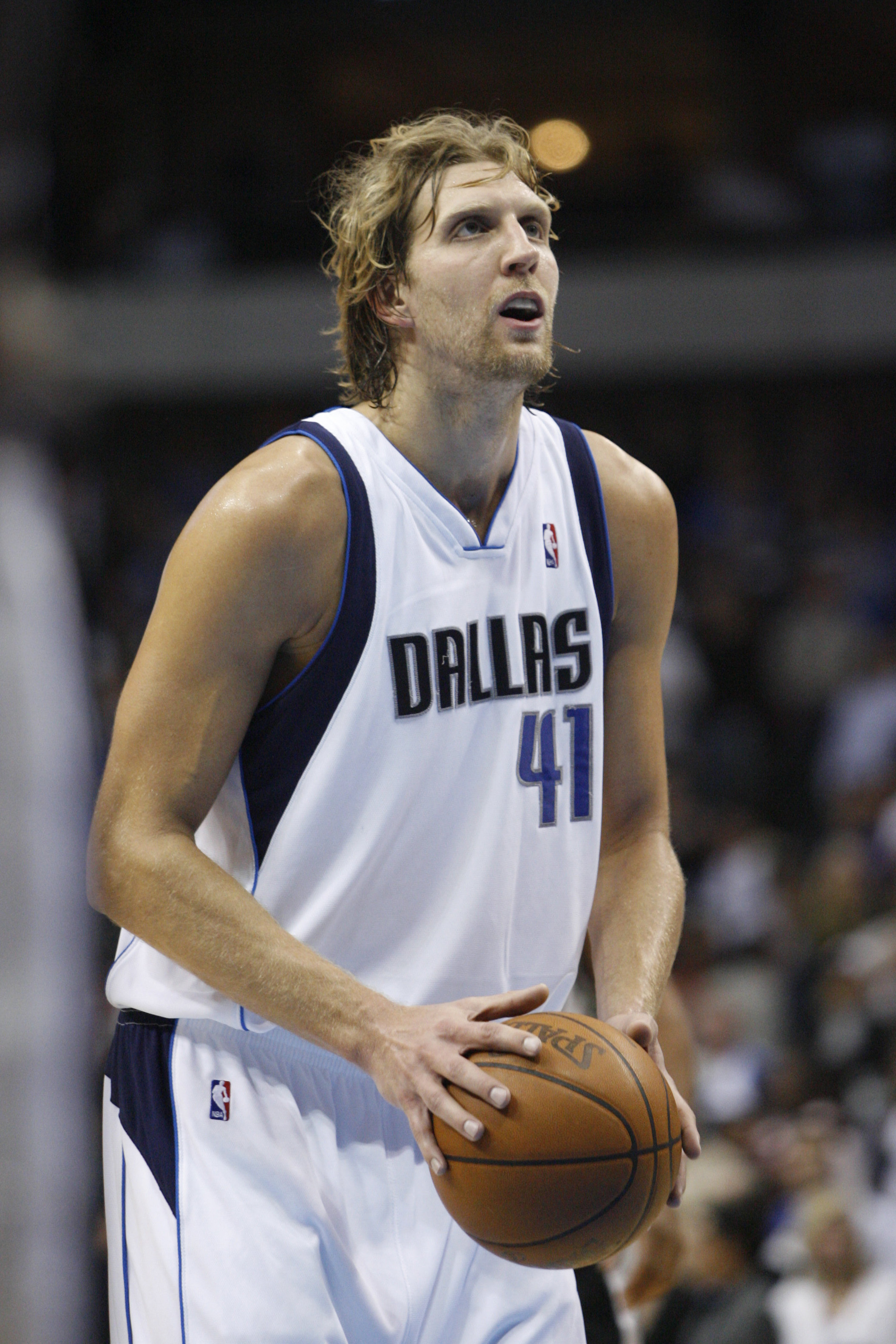
Nobody knows how LeBron James could not get over the hump and win his first championship against the Miami Heat after joining forces with Dwyane Wade and Chris Bosh. If there was a reason, it was due to one man: Dirk Nowitzki.
During the regular season, Nowitzki averaged 23.0 points, 6.8 rebounds, and 2.6 assists per game. He played with unwavering determination, leading the Mavericks to a 57-25 record, securing the third seed in the highly competitive Western Conference. In the playoffs, Nowitzki’s brilliance shone even brighter. The Mavericks faced daunting opponents on their way to the NBA Finals, including the defending champion Los Angeles Lakers, the young and talented Oklahoma City Thunder, and the star-studded Miami Heat in the championship series.
The NBA Finals pitted the Mavericks against the Miami Heat, led by LeBron James, Dwyane Wade, and Chris Bosh. The Heat were heavily favored to win the championship, with LeBron’s decision to join Miami in the previous offseason still a contentious topic in the basketball world.
Throughout the Finals, Dirk Nowitzki displayed an unrivaled level of determination and focus. He showcased his clutch gene, hitting crucial shots when his team needed them the most. Despite being the underdog, Dirk averaged 26.0 points and 9.7 rebounds per game in the Finals to shatter LeBron’s dream of winning his first title. Despite the shocking defeat, James would go on to win back-to-back titles in 2012 and 2013 with the Heat.
2014 – Tim Duncan (San Antonio Spurs)
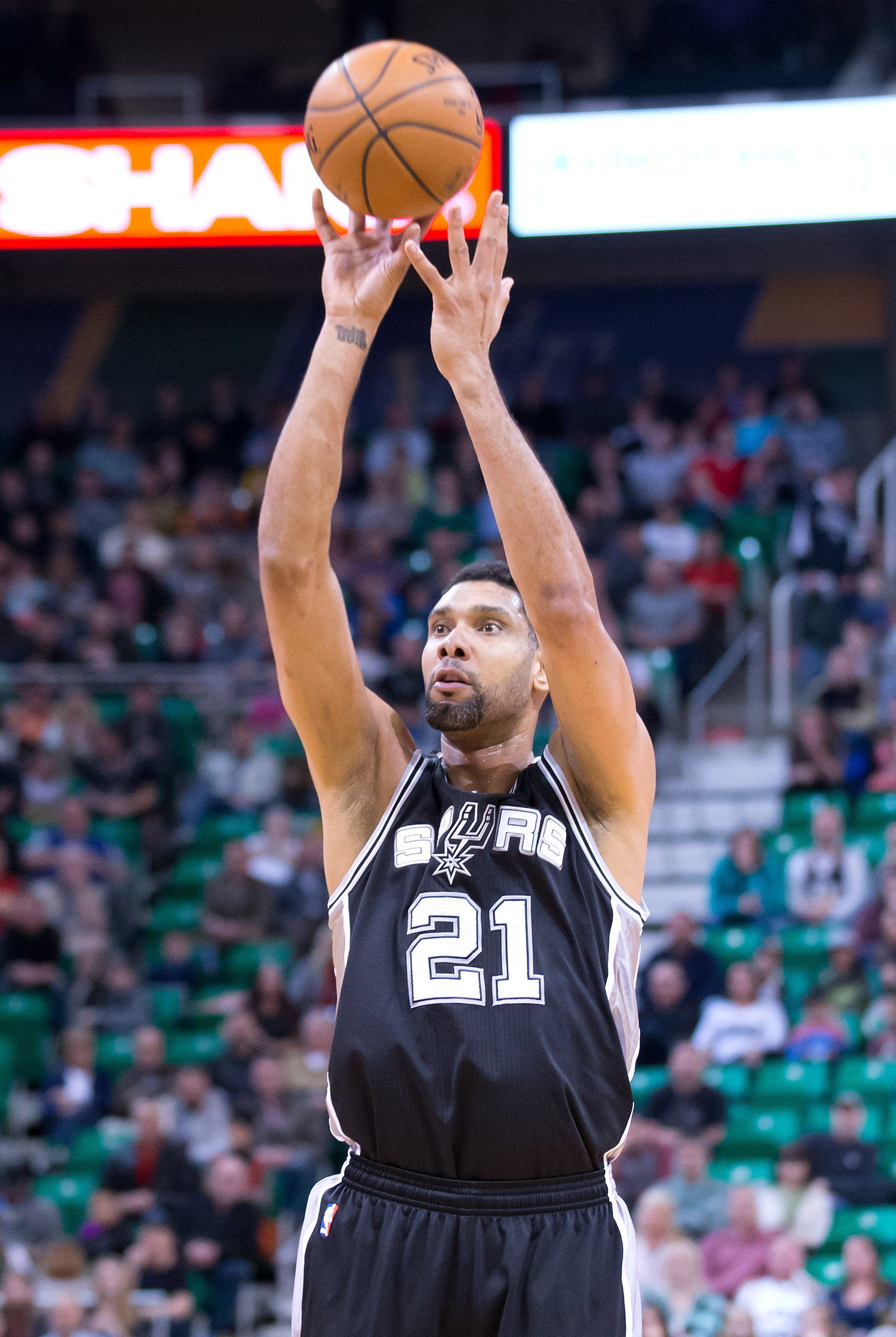
After coming off two straight championship victories with the Miami Heat, James was looking for his first three-peat. However, it would not come thanks to the brilliance of Tim Duncan, Kawhi Leonard, and the legendary San Antonio Spurs featuring Gregg Popovich.
In the 2013-14 NBA season, the San Antonio Spurs, led by the veteran Tim Duncan and the emerging star Kawhi Leonard, demonstrated a basketball clinic in team play and unselfishness. The combination of Duncan’s experience and Leonard’s defensive prowess proved to be a lethal force throughout the season and playoffs.
After finishing with a 62-20 record to win the West, the Spurs were a major title contender. In the playoffs, the Spurs navigated through a challenging Western Conference, defeating formidable opponents like the Dallas Mavericks, Portland Trail Blazers, and Oklahoma City Thunder to reach the NBA Finals. There, they faced the star-studded Miami Heat, led by LeBron James, Dwyane Wade, and Chris Bosh, in a rematch of the 2013 Finals.
Tim Duncan’s leadership and steady performances were evident throughout the series. His ability to control the tempo, make crucial defensive plays, and contribute on the offensive end set the tone for the Spurs. On the other hand, Kawhi Leonard’s tenacious defense on LeBron James was one of the key storylines of the Finals. Leonard’s defensive efforts significantly disrupted James’ offensive rhythm and earned him praise as one of the best defenders in the league.
By blowing out the Miami Heat by a record margin, LeBron James had to endure another example of Tim Duncan and the San Antonio Spurs winning a championship on his watch. While James had superstar teammates beside him, this loss would spell the end of his reign in Miami for good as he would return to Cleveland.
2015 – Stephen Curry (Golden State Warriors)
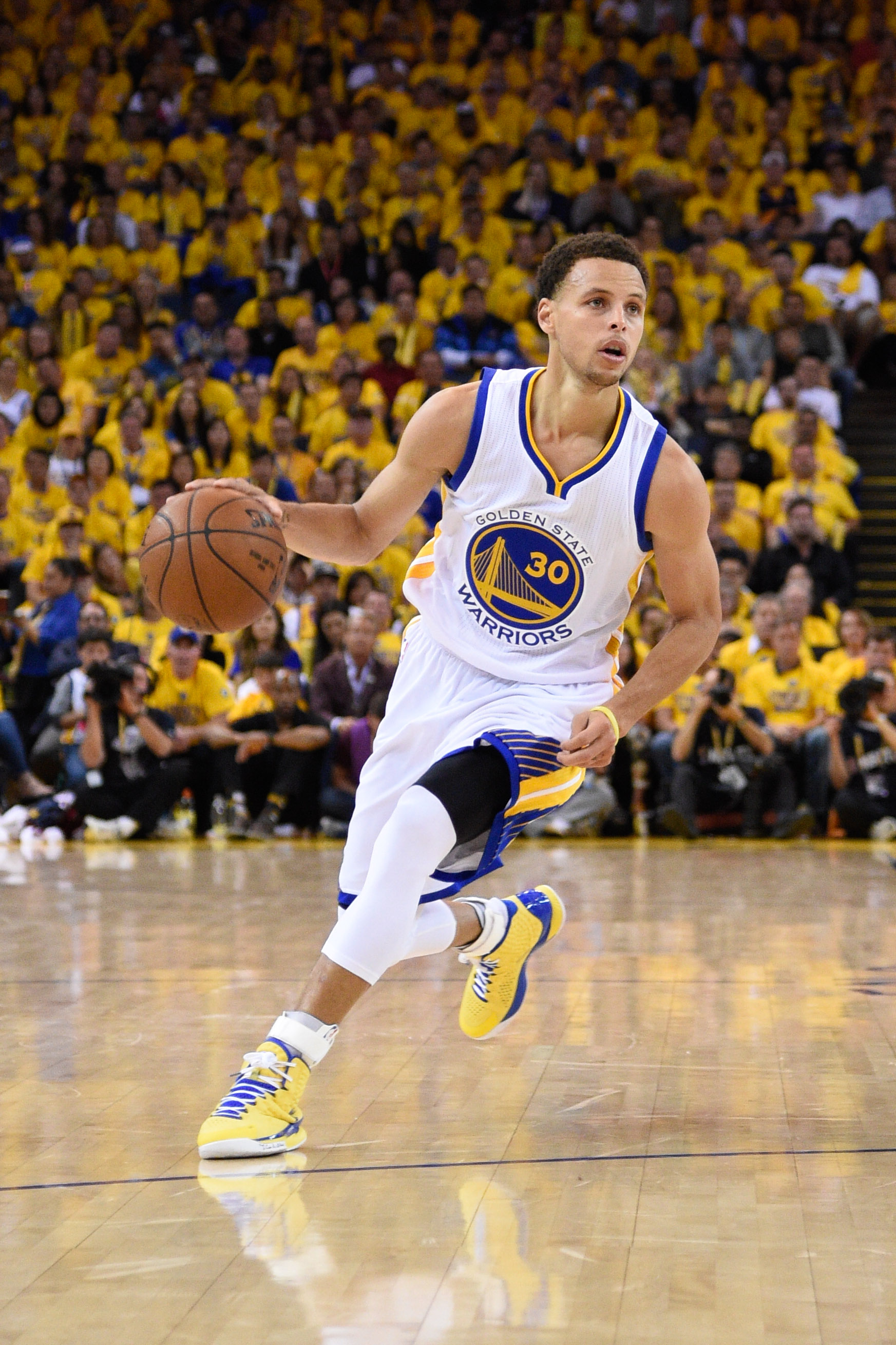
In the 2014-15 NBA season, Stephen Curry, the electrifying point guard of the Golden State Warriors, took the league by storm with his revolutionary shooting and mesmerizing ball-handling skills. Curry’s ability to shoot from virtually anywhere on the court, combined with his exceptional passing and basketball IQ, made him a force to be reckoned with.
During the regular season, Curry had a historic campaign, averaging 23.8 points, 7.7 assists, and 4.3 rebounds per game. He also shattered the NBA record for most three-pointers made in a single season, highlighting his unparalleled shooting prowess.
In the playoffs, the Warriors, led by Curry, displayed their formidable depth and dominance, storming through the Western Conference. Curry’s ability to create space and knock down long-range shots with precision made him a nightmare for opposing defenses. Alongside fellow All-Star Klay Thompson and a strong supporting cast including Draymond Green and Andre Iguodala, the Warriors showcased a unique style of basketball, heavily relying on the three-point shot.
In the NBA Finals, the Warriors faced LeBron James and the Cleveland Cavaliers in The King’s first season back with his hometown team. The series became a battle of wills between Curry and LeBron, with both superstars putting on incredible performances. Curry’s scoring and playmaking ability was on full display throughout the Finals, as he consistently posed a threat to the Cavaliers’ defense. Despite Andre Iguodala winning Finals MVP and LeBron having to deal with Kyrie Irving and Kevin Love’s injuries in the series, The King had to endure Curry winning a title on his watch.
2017 – Kevin Durant, Stephen Curry (Golden State Warriors)

After losing in the 2016 Finals to LeBron James (his third championship), the Golden State Warriors regrouped by signing one of the game’s greatest scorers in Kevin Durant to form a superteam. During the regular season, Durant averaged 25.1 points, 8.3 rebounds, and 4.8 assists per game. His seamless integration into the Warriors’ system was evident, and he quickly became a vital piece of the team’s success. Curry, on the other hand, averaged 25.1 points, 8.3 assists, and 4.5 rebounds per game, displaying his unmatched shooting range and playmaking abilities.
In the playoffs, the Warriors dominated their way to the NBA Finals, meeting the Cleveland Cavaliers for the third consecutive year. This time, LeBron James had no chance. Durant and Curry showcased their offensive brilliance, consistently tormenting the Cavaliers with their scoring and playmaking. Durant’s scoring prowess and ability to create his own shot proved invaluable, while Curry’s mesmerizing ball-handling and three-point shooting caused constant headaches for the Cavaliers’ defense.
Durant’s standout performance came in Game 3 of the Finals when he scored 31 points, leading the Warriors to a decisive 118-113 victory. His all-around contributions and clutch plays earned him the Finals MVP honors as the Warriors secured their second championship in three years, with James having to accept that he was helpless.
2018 – Kevin Durant, Stephen Curry (Golden State Warriors)
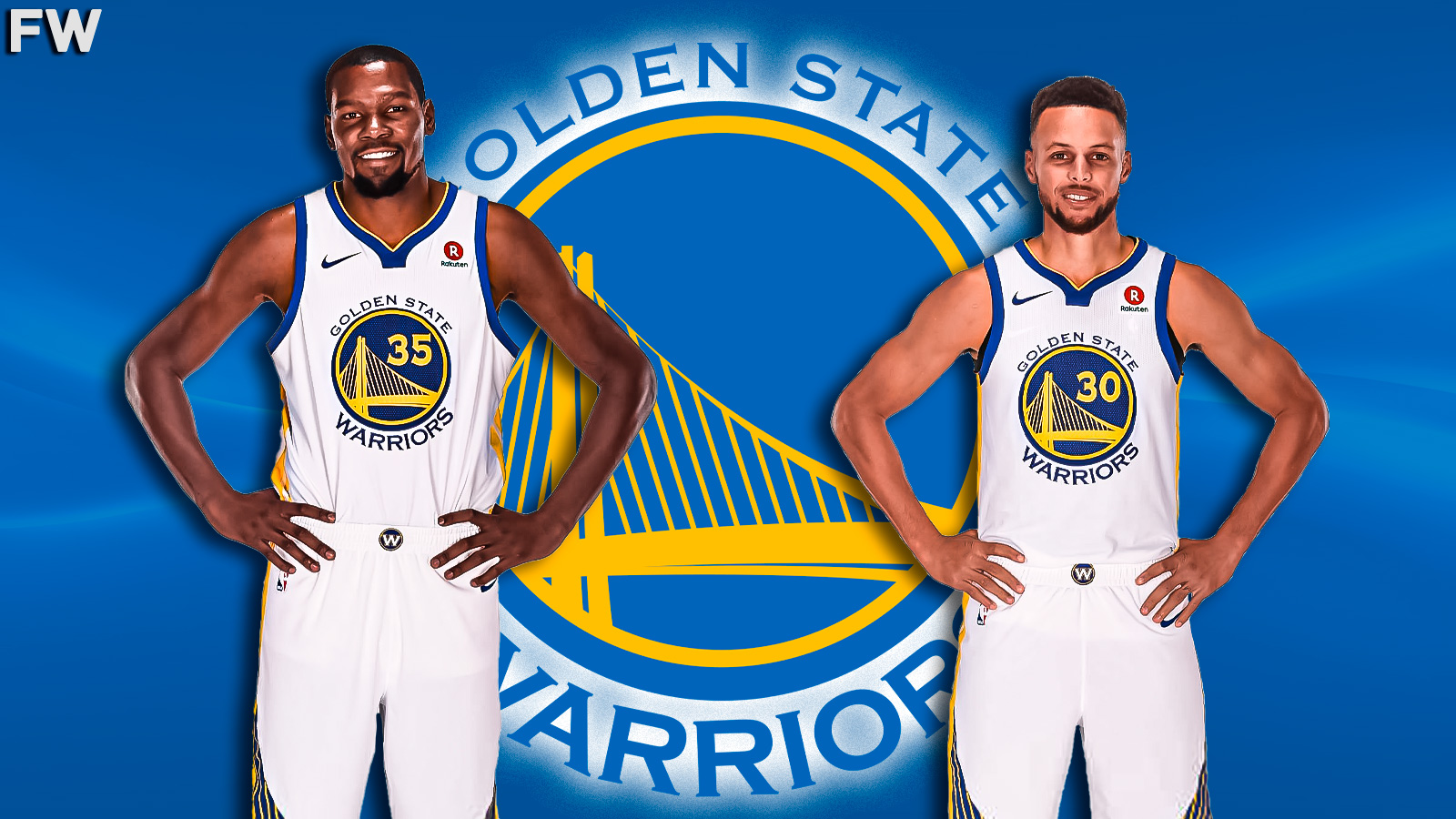
The following season, the Warriors continued their dominance, once again led by the brilliance of Kevin Durant and Stephen Curry. Durant maintained his scoring prowess, averaging 26.4 points, 6.8 rebounds, and 5.4 assists per game, while Curry put up 26.4 points, 6.1 assists, and 5.1 rebounds per game.
In the playoffs, the Warriors faced stiff competition, but Durant and Curry elevated their performances when it mattered most. Their offensive firepower and ability to work together as a cohesive unit helped the Warriors advance through the playoffs and reach the NBA Finals for the fourth consecutive year.
In the NBA Finals, the Warriors faced the Cavaliers once again. Kevin Durant continued to assert his dominance, averaging 28.8 points, 10.8 rebounds, and 7.5 assists per game during the Finals. Curry, known for his flair and clutch shooting, contributed 27.5 points, 6.8 assists, and 6.0 rebounds per game.
Durant’s Game 3 performance in the Finals was once again a standout moment, as he scored 43 points, including a deep, contested three-pointer in the closing moments of the game, leading the Warriors to a thrilling 110-102 victory.
The Warriors won the NBA championship in a clean sweep, securing their third title in four years. Kevin Durant’s outstanding performances throughout the playoffs earned him the Finals MVP award for the second consecutive year. Once again, James had to endure Kevin Durant and Stephen Curry winning championships during his era.
2019 – Kawhi Leonard (Toronto Raptors)
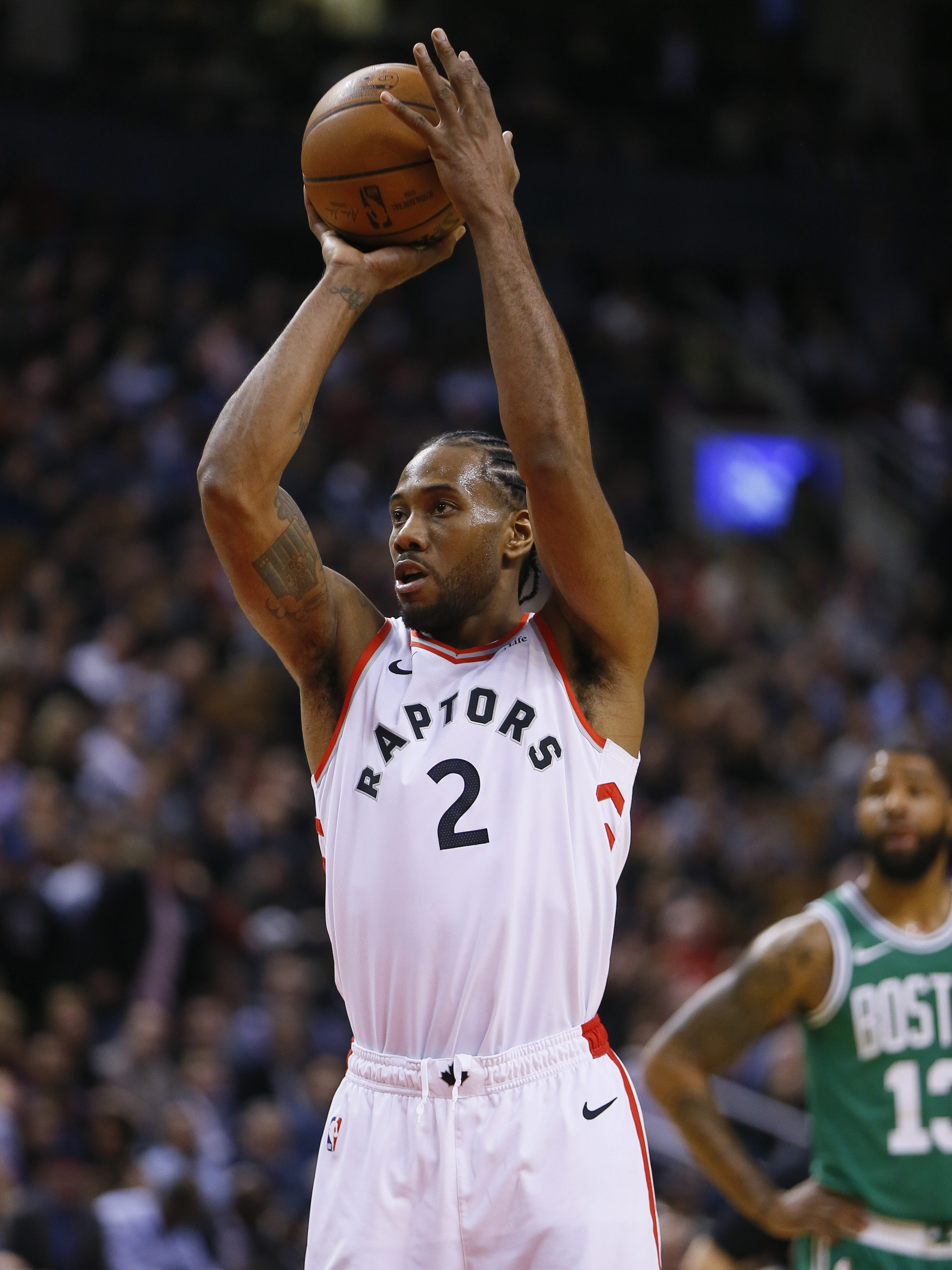
In quite an ugly fashion to start, Kawhi Leonard joined the Toronto Raptors, bringing with him a reputation as one of the league’s elite two-way players. Leonard’s arrival bolstered the Raptors’ roster, and he quickly became the team’s focal point on both offense and defense.
During the regular season, Leonard demonstrated his impact, averaging 26.6 points, 7.3 rebounds, and 3.3 assists per game. His defensive skills were equally noteworthy, as he guarded the opposition’s best players and became a force in stealing and disrupting passing lanes.
In the playoffs, Leonard showcased his ability to elevate his game on the biggest stage. The Raptors faced tough competition throughout their championship run, but Leonard’s performances were consistently stellar. His offensive repertoire, highlighted by his efficient scoring and clutch shooting, propelled the Raptors through the Eastern Conference playoffs.
In the NBA Finals, the Raptors faced the heavily favored Golden State Warriors, who were aiming for their fourth championship in five years. Leonard’s impact on both ends of the floor became even more pronounced in the Finals. His tenacious defense, combined with his scoring prowess, made him the focal point of the Raptors’ offense.
Injuries to Kevin Durant and Klay Thompson meant Leonard was able to showcase what he could do, capturing his second Finals MVP award by averaging 28.5 points, 9.8 rebounds, and 4.2 assists per game in the Finals. While LeBron James was competing in his first season with the Los Angeles Lakers, he would win the title the following year when his team acquired superstar big man Anthony Davis.
2021 – Giannis Antetokounmpo (Milwaukee Bucks)

In the 2020-21 NBA season, Giannis Antetokounmpo led the Milwaukee Bucks to their first NBA championship in 50 years. As a dominant forward with a unique blend of size, athleticism, and skill, Giannis became one of the most unstoppable forces in the league.
During the regular season, Giannis averaged an impressive 28.1 points, 11.0 rebounds, and 5.9 assists per game. His ability to impact the game on both ends of the floor made him a formidable opponent for any team in the league. In the playoffs, the Bucks faced tough challenges, including the Miami Heat, Brooklyn Nets, and Atlanta Hawks, on their way to the NBA Finals.
In the NBA Finals, the Bucks faced the Phoenix Suns, led by Chris Paul and Devin Booker. Giannis’ impact was immediately felt, especially on the defensive end, where his ability to guard multiple positions and protect the rim became a pivotal factor in the series. He demonstrated an incredible level of determination and focus, which was on full display during Game 6 of the Finals.
In Game 6, with the Bucks leading 3-2 in the series and facing elimination, Giannis produced one of the greatest performances in NBA Finals history. He scored 50 points, grabbed 14 rebounds, and blocked 5 shots, leading the Bucks to a memorable 105-98 victory and clinching the NBA championship.
Meanwhile, LeBron James was unable to return to the Finals with the Lakers, as injuries derailed the Lakers’ season, with both James and Anthony Davis missing a combined 68 games during the regular season.
2022 – Stephen Curry (Golden State Warriors)
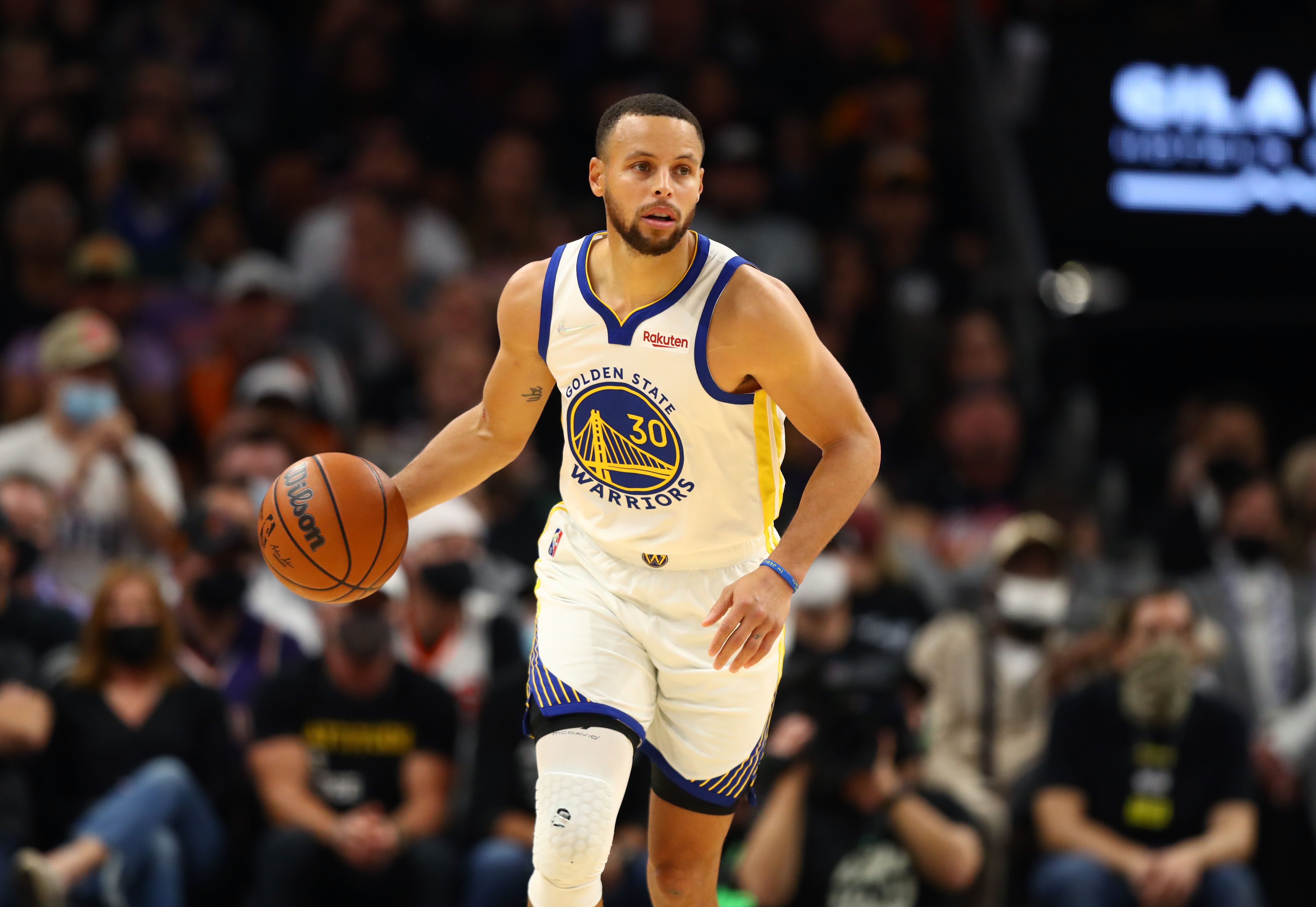
In the 2021-22 season, LeBron James and the Los Angeles Lakers would be nowhere to be found as they missed the playoffs entirely with only 33 wins despite Russell Westbrook joining the roster. Meanwhile, the Golden State Warriors would win the 2022 championship in the greatest and most important season in Stephen Curry’s career.
Curry averaged 25.5 points and 6.3 assists per game in the regular season but took his numbers to 27.4 points and 5.9 assists per game in the playoffs. As great as Curry was in the playoffs, he was even better in the Finals. The point guard averaged 31.2 points, 6.0 rebounds, and 5.0 assists per game against the Boston Celtics, and there was no way Jayson Tatum and Jaylen Brown could lead the team past the veteran side.
For the fourth time in LeBron’s career, Stephen Curry would win a championship despite James competing at a high level. Sure, James would show a decline in his athleticism, but he was still a top-10 player in the world, and going after his fifth championship would be critical.
2023 – Nikola Jokic (Denver Nuggets)
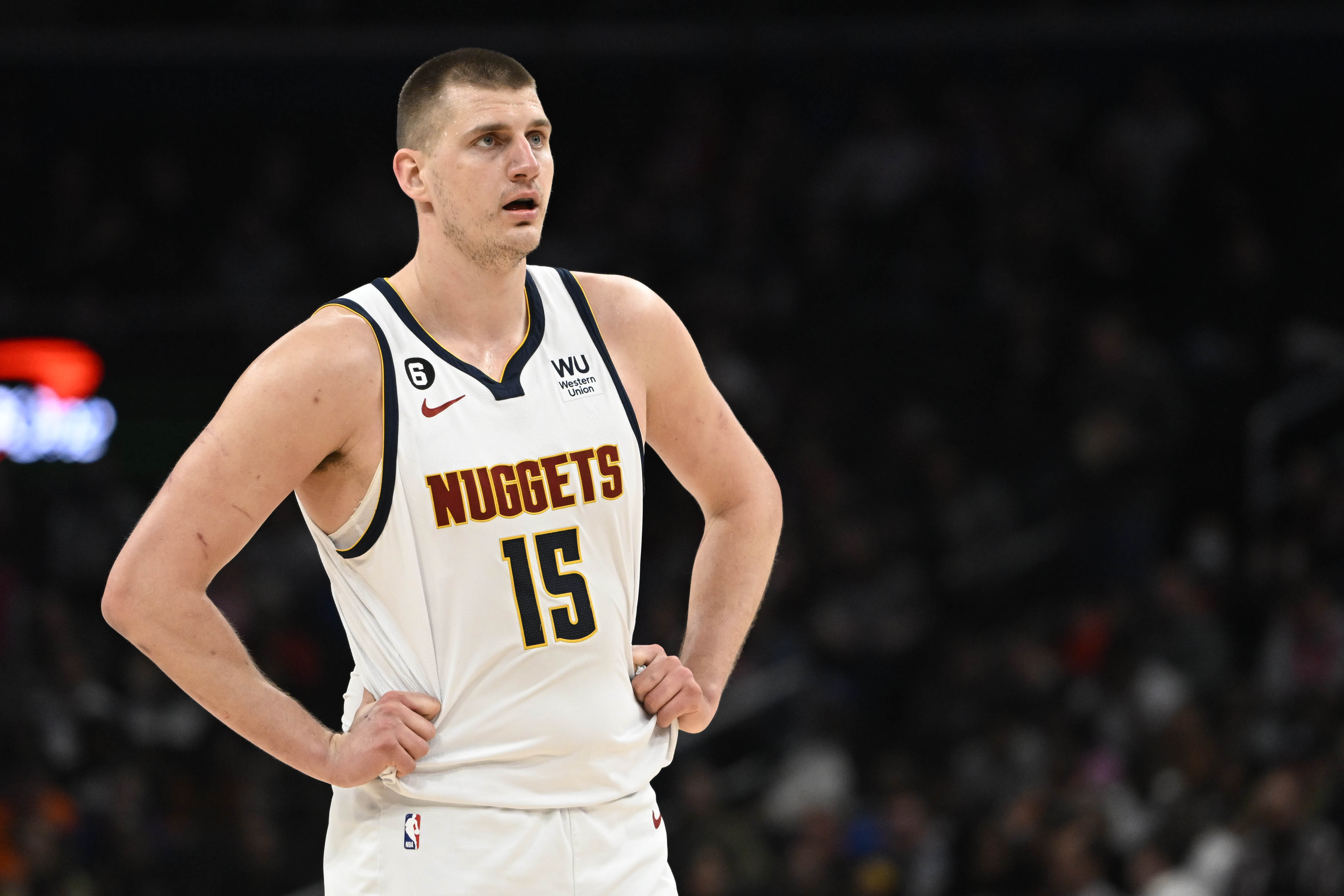
In the 2022-23 season, LeBron James would once again have to see another superstar player win a title in his era. LeBron would have himself a historical season as he would end up as the NBA’s all-time scoring leader during the season, but the Lakers struggled to win enough games. However, a trade deadline change in the roster pushed the team to the Western Conference Finals against the Denver Nuggets.
Led by superstar center Nikola Jokic, the Nuggets made quick work of the Lakers as they won in a four-game sweep. Denver was simply younger, more athletic, and better coached as they would make it to the Finals against the underdog Miami Heat.
As expected, the Nuggets would win the championship, with Jokic earning Finals MVP honors. Despite James’ late push to try to make it to the Finals for his fifth championship, another superstar player would win a title on his watch.
Michael Jordan Only Let 3 Superstars Win Championships In His Prime, LeBron James Had To Succumb To 10 Players
Overall, Michael Jordan only let three NBA superstars win championships on his watch. By disregarding his first three seasons in the league and the final two seasons with the Washington Wizards, where there were zero expectations, Jordan only allowed Magic Johnson, Isiah Thomas, and Hakeem Olajuwon to win titles in his prime.
Magic is the greatest point guard of all time, so there is no surprise to see him win a title even during the GOAT’s era. Similarly, Isiah Thomas is one of the game’s greatest competitors, and he had an entire “Bad Boys” army featuring Joe Dumars and Bill Laimbeer, among others. The Pistons were Jordan’s biggest rivals as they beat him down and out of the playoffs until Scottie Pippen arrived in superstardom.
Finally, Hakeem Olajuwon would win back-to-back titles, but Jordan would be retired in the 1994 season and only returned to play seven games in the 1995 season. In essence, and in all fairness, only Magic Johnson and Isiah Thomas were able to defeat Michael Jordan’s prime years, which could be another example of the GOAT’s greatness.
Meanwhile, LeBron James had his ups and downs in his era. While the likes of Kobe Bryant and Tim Duncan winning championships was expected, James probably should not have allowed Dirk Nowitzki to capture a championship considering how dominant the Miami Heat was. James also fell to the Boston Celtics in the playoffs, and could not handle the superteam in front of home when he was a Cleveland Cavalier.
As LeBron aged, he was unable to keep up with the likes of Giannis Antetokounmpo and Nikola Jokic, as he had to see those two stars lift championship trophies. It is important to mention how LeBron has had a far longer prime than MJ, and that meant there will naturally be more opportunities for players to win titles. Even if that is the case, it is clear that Jordan was far more dominant in his era than LeBron was in his, which could yet again provide His Airness with more ammunition of being the greatest basketball player of all time.

